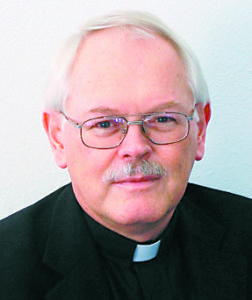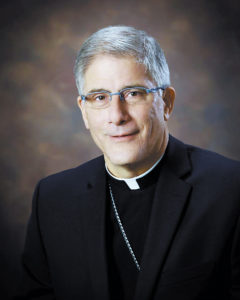
Father Ron Rolheiser, OMI
IN EXILE
By Father Ron Rolheiser, OMI
Sometimes all you can do is to put your mouth to the dust and wait. That’s a counsel from the Book of Lamentations and while perhaps not the best response to the recent revelations of clerical sexual abuse and cover-up in the Roman Catholic Church, it seems the only helpful response available to me as Roman Catholic priest today. Beyond prayer, I’ve been hesitant to respond otherwise to this current situation for three reasons.
My first hesitation has to do with the seeming futility of yet another apology and breast-beating. Since the report on sexual abuse and clerical cover-up was released in Pennsylvania a few weeks back, there have been apologies issued by virtually every diocese, every parish and every priest in America, including one from the Pope himself. While these apologies have been almost universally sincere, non-defensive, and rightly focused on the victims, they’ve also for the most part not been well-received. More generally the response has been: “What good does that do now! Where were you when this was all happening?” The apologies have generally met with more cynicism and anger than acceptance. And yet it’s important that they be made, though I’m not sure my adding another one will be helpful.
My second hesitancy stems from the fact that there’s so much anger and grief around this issue right now that words, even the right ones, generally don’t hit their mark, akin to telling someone freshly grieving the death of loved one that “she’s in a better place.” The words are true, but moment’s too raw for the words to be heard. They only become effective later. And that’s the situation now; we’re in a time of raw anger and dark grief. These are in fact the same emotion (just that one’s hard and the other soft) and so for many people dealing with the revelations of clerical sexual abuse and cover-up right now, apologies, while necessary, are not being heard. The moment is too raw.
And, one last hesitation: As a priest with a vow of celibacy I’m painfully aware that right now I’m at an understandable disadvantage to speak out on this. Victims speak from a position of moral privilege, rightly so, their voices carry extra authority; but those who stand symbolically connected to the perpetrators, and that’s me, are understandably heard with suspicion. I accept that. How could it be otherwise? At this particularly charged moment, what moral authority can my voice carry on this issue? What does my apology add?
But, for what it’s worth, even given those caveats, I do offer an apology: As Roman Catholic priest, I want to publicly say that what’s happened in the church in terms of sexual abuse by the clergy and cover-up by the hierarchy is inexcusable, deeply sinful, has harmed thousands of lives irrevocably and needs radical redress in terms of reaching out to the victims and of prompting structural change in the church to ensure that this will never happen again.
Let me add something else: First, as a Roman Catholic priest, I do not distance myself from this by morally separating myself from those who have done wrong by declaring: “They’re guilty and I’m not!” The cross of Jesus doesn’t allow such an escape. Jesus was crucified between two thieves. He was innocent, they weren’t; but he didn’t protest his innocence, and those looking at three crosses that day didn’t distinguish between who was innocent and who was guilty. The crosses were all painted with the same brush. There are times when one does not protest one’s innocence. Part of Jesus’ mission, as our liturgy puts it, was “to become sin for us,” to risk having his innocence mixed in with guilt and be perceived as sin so as to help carry darkness and sin for others.
Beyond our apologies, all of us, clergy and laity alike, are invited to do something for the church right now, namely, help carry this scandal as Jesus did. Indignantly separating ourselves morally from this sin is not the way of Jesus and the cross.
Like Mary standing under the cross, we must not replicate the anger and darkness of the moment so as to give it back in kind. Instead, like her, we must do the only thing possible sometimes when standing beneath the consequence of sin, that is, let our posture, like Mary’s, speak deeply through a voice that, unlike bitterness or collapse, says: “Today, I can’t stop this darkness, nobody can. Sometimes darkness just has its hour. But I can stop some of the sin and bitterness that’s in the moment by absorbing it, not distancing myself from it, and not giving it back in kind.” Sometimes darkness has its moment and we, followers of Jesus, may not self-servingly distance ourselves from the sin but need to help absorb it.
Sometimes all we can do is put our mouths to the dust … and pray … and wait. Knowing that, at some future time, the stone will again roll away from the tomb.
(Oblate Father Ron Rolheiser, theologian, teacher and award-winning author, is President of the Oblate School of Theology in San Antonio, TX.)



